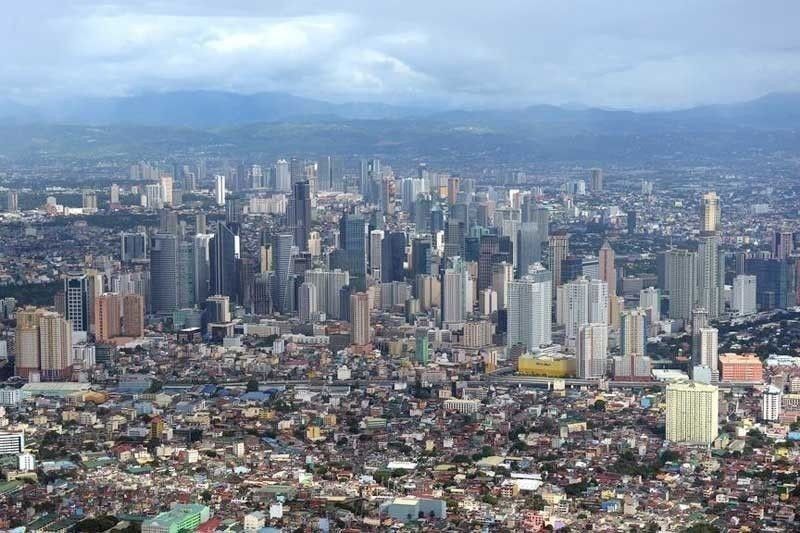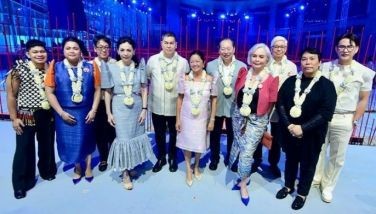Japanese firms seek flexible work arrangement for PEZA enterprises

MANILA, Philippines — Japanese firms are seeking flexible work arrangements and incentives for business enterprises registered with the Philippine Economic Zone Authority (PEZA).
In a Viber message to reporters yesterday, PEZA director-general Tereso Panga said members of the Japanese Chamber of Commerce and Industry of the Philippines Inc. (JCCIPI) have asked whether the PEZA has resolved the work from home (WFH) issue.
“Their clamor is for PEZA RBEs (registered business enterprises) to be able to avail of flexi-work with incentives following the same treatment for BOI (Board of Investment) RBEs,” Panga said.
“In PEZA, we are pushing for [a] hybrid workplace with max 30 percent allowance for WFH by our locators. Most of our locators would like to keep their PEZA registration and sites, while availing of flexiwork for their workers,” Panga said.
In September 2022, the Fiscal Incentives Review Board (FIRB) issued a resolution allowing RBEs under the information technology business process management (IT-BPM) sector to adopt up to 100 percent WFH arrangement by transferring their registration to the BOI from PEZA.
Based on the FIRB resolution, among the RBEs that can exercise the option to register with BOI are those that have remaining tax incentives under Section 311 of the National Internal Revenue Code of 1997 and RBEs with approved incentives on or before Sept. 14, 2020 under the Corporate Recovery and Tax Incentives for Enterprises (CREATE) with the concerned investment promotion agency (IPA).
Apart from the WFH issue, Panga said JCCIPI members are also asking the PEZA if the Office of the President can speed up the process for ecozone proclamation to provide ready for occupancy sites for new and expanding investors.
“The President has tasked DTI (Department of Trade and Industry), PEZA and OP to harmonize and streamline the ecozone proclamation process to facilitate the creation of more ecozones particularly in the countryside,” Panga said.
Republic Act 7916, otherwise known as The Special Economic Zone Act of 1995 that created the PEZA, states that PEZA ecozones need to receive a proclamation by the President before it can be established.
The PEZA earlier welcomed the administration’s decision to include economic zones in its five-year Philippine Development Plan (PDP), citing its ability to accelerate economic growth and soften the impact of external headwinds.
Under PDP 2023-2028, PEZA is tasked to expedite the implementation of the ecozone transformation roadmap, which expands the different types of special economic zone registrable under PEZA. This includes the new frontiers for ecozone development that PEZA has been advocating as a catalyst for growth and development.
The PDP states that the creation of ecozones will maximize investments and promote industrial dispersion, especially outside metropolitan areas, adding that the ecozones will be integrated into the local economy by relaxing the requirements, facilitating the free flow of parts, components, and other inputs, and increasing open trade between zone locators and firms outside the zones.
Responding to concerns raised by the JCCIPI members during its recent annual general membership meeting, Panga assured the Japanese group that the PEZA is in close coordination with the other agencies and organizations to continuously address the pain-points that are proving to be the barriers in the entry of investments to our country.
During his keynote address, Panga noted that Japan has always been PEZA’s top investor.
“The remarkable contributions of our Japanese locator companies serve as a prime example of the strong partnership and economic progress achieved through the collaboration between Japan and the Philippines in which we continue to fortify,” Panga said.
Currently, there are a total of 884 Japanese enterprises in PEZA contributing P745.637 billion investments and directly employing 345,807 workers.
For this year, the PEZA has already approved three big-ticket Japanese investments with a combined investment capital of P20.951 billion.
With more investment missions being conducted, the PEZA said it is certain that more foreign direct investments from Japan will enter the Philippines starting this year.
“It is now up to us to follow through the investment pledges we received during the various investment missions abroad done especially by President Marcos, the best salesman in promoting the Philippines for greater trade and investment opportunities,” Panga said.
In preparation for the influx of investments in the country, PEZA and JCCIPI are looking for areas of collaboration.
“We look forward to future collaborations and opportunities to work together in promoting bilateral business relations and economic growth,” said JCCIPI president Shimoda.
- Latest
- Trending






















